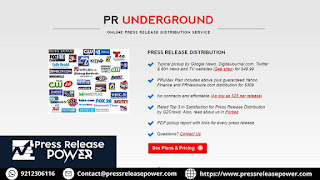How to Choose the Right Humidifier for Dry Winter Air
As the winter season approaches, many people start to experience the discomfort of dry indoor air. Dry air can lead to a variety of issues, including dry skin, irritated sinuses, and even an increased risk of respiratory infections. To combat these problems, many turn to humidifiers to add moisture to their homes. However, choosing the right humidifier for your specific needs can be a daunting task, given the wide range of options available in the market. In this comprehensive guide, we will walk you through the process of selecting the perfect humidifier to keep your indoor air comfortable and healthy during the dry winter months.
The winter season brings with it many joys, such as holidays and cozy evenings by the fireplace. However, it also brings dry air that can lead to a range of discomforts, from dry skin and chapped lips to scratchy throats and aggravated allergies. This is where a humidifier comes in handy. Humidifiers are devices designed to add moisture to the air in your home, increasing indoor humidity levels and improving overall comfort.
Understanding the Importance of Humidity
Before diving into the world of humidifiers, it's essential to understand why maintaining the right humidity level is crucial for your health and well-being, especially during the winter months. Here are some key reasons:
Respiratory Health: Dry air can irritate the respiratory system, leading to symptoms like coughing, congestion, and a higher susceptibility to respiratory infections.
Skin Health: Low humidity can cause dry and itchy skin, exacerbating conditions like eczema. Proper humidity levels help maintain skin moisture.
Comfort: Adequate humidity makes your indoor environment more comfortable, preventing issues like dry eyes and a scratchy throat.
Protection for Your Home: Dry air can damage wooden furniture, flooring, and musical instruments. Maintaining proper humidity levels can help preserve these items.
Types of Humidifiers
Humidifiers come in various types, each with its own advantages and disadvantages. Understanding the differences can help you make an informed decision.
Ultrasonic Humidifiers
- Advantages: Quiet operation, energy-efficient, can produce both warm and cool mist.
- Disadvantages: Requires regular cleaning to prevent bacterial growth.
Evaporative Humidifiers
- Advantages: Affordable, energy-efficient, suitable for larger rooms.
- Disadvantages: May be noisier, filter replacement required.
Warm Mist Humidifiers
- Advantages: Produces warm, soothing mist, can help alleviate congestion.
- Disadvantages: Higher energy consumption, poses a burn risk, requires regular cleaning.
Cool Mist Humidifiers
- Advantages: Energy-efficient, safe for children and pets, effective in maintaining humidity levels.
- Disadvantages: May produce white dust (mineral deposits), requires regular cleaning.
Choosing the Right Size
Selecting the right-sized humidifier is crucial to ensure it effectively covers the area you intend to humidify. Consider the square footage of the room and the humidifier's coverage capacity. A unit too small will be ineffective, while one too large may lead to excess humidity.
Determining the Ideal Humidity Level
Maintaining the right humidity level in your home is essential. Experts recommend keeping indoor humidity levels between 30% and 50% during the winter months. Using a hygrometer can help you monitor and adjust humidity levels as needed.
Additional Features to Consider
When shopping for a humidifier, consider features such as adjustable mist settings, built-in timers, digital displays, and remote controls for convenience. Some models also offer humidity sensors to automate the operation.
Maintenance and Cleaning
Proper maintenance is key to the longevity and effectiveness of your humidifier. Regularly clean and disinfect the unit to prevent mold and bacteria growth. Follow the manufacturer's instructions for cleaning and replacing filters.
Energy Efficiency
Humidifiers vary in energy consumption. Look for models with the ENERGY STAR label, which signifies energy-efficient operation. This can help reduce your energy bills while maintaining comfort.
Health Considerations
For those with specific health concerns, such as allergies or asthma, consider a humidifier with a built-in air purifier to improve air quality. Consult with a healthcare professional for personalized recommendations.
Installation and Placement
Proper placement of your humidifier is essential. Ensure it is on a flat, stable surface and positioned away from walls and curtains to allow for proper air circulation. Avoid placing it too close to your bed or furniture.
Budget Considerations
Humidifiers come in various price ranges. Set a budget based on your needs and preferences, but remember that investing in a quality unit can pay off in terms of durability and performance.
Popular Humidifier Brands
To help you get started on your search, here are some reputable humidifier brands known for their quality and reliability: [List of Popular Brands]
Choosing the right humidifier for your home during the dry winter months can significantly improve your indoor air quality and overall comfort. By considering factors such as type, size, features, and maintenance, you can find the perfect humidifier to keep your living space comfortable and healthy.
How do I know if my home needs a humidifier?
- If you experience dry skin, irritated sinuses, or frequent static electricity, it's a good indicator that your home may benefit from a humidifier.
Can I use tap water in my humidifier?
- Using distilled or demineralized water is recommended to prevent the buildup of mineral deposits in the unit.
How often should I clean my humidifier?
- It's best to clean your humidifier every few days, following the manufacturer's instructions. Regular cleaning prevents mold and bacteria growth.
Are there humidifiers suitable for larger spaces?
- Yes, some humidifiers are designed for larger rooms and offer higher coverage capacities. Be sure to check the product specifications.
Can a humidifier help with snoring?
- Humidifiers can alleviate snoring caused by dry throat and nasal passages by adding moisture to the air. However, they may not solve snoring caused by other factors.
With the right humidifier in place, you can look forward to a comfortable and enjoyable winter season, free from the discomforts of dry indoor air.









 English (US) ·
English (US) ·